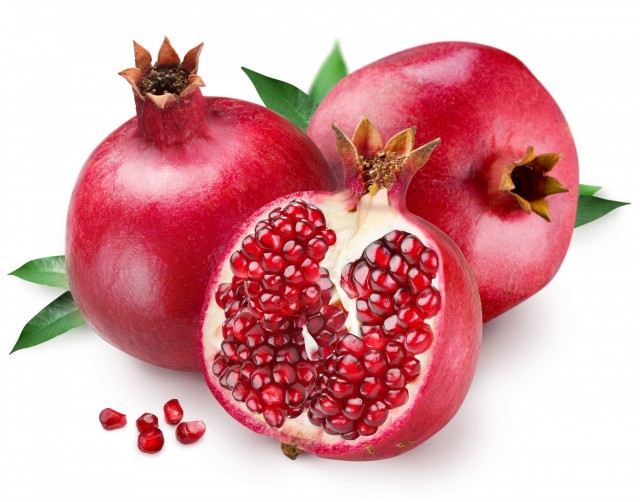The pomegranate is native to the Mediterranean region and is widely cultivated since ancient times.
Pomegranates can be cultivated in any kind of soil except calcareous or saline soils. Better aeration of the root system enables better production of the fruit. Pomegranates are cultivated in France, Spain, Asia, Israel, North America and South America. There are nearly fourteen types of Pomegranate trees.
This fruit is a symbol of fertility. Early Egyptians were buried with pomegranates with the hope of rebirth .Being an ancient fruit, there are many myths and stories about pomegranate
Pomegranate tree offers several medicinal values. The pomegranate juice has several health benefits.
- Pomegranate is rich in rich in antioxidants, such as soluble polyphenols, tannins, and anthocyanins.
- Pomegranate is useful in reducing heart diseases and blood pressure.
- The bark of the pomegranate tree is to treat intestinal parasites.
- Pomegranate is for the diabetics to reduce the risk of atherosclerosis.
Research is being carried out to study the effect of pomegranate on diseases such as lymphoma, rhinovirus infection, common cold, oxidative stress in hemodialysis, atherosclerosis. This fruit is rich in vitamins.
Apart from medicinal values, pomegranate has wide applications. Interestingly, pomegranate is used as a spice in Asian cuisines.
The fruit can be sweet or sour in taste, depending on its ripeness. Pomegranate recipes are well famous in different parts of the world.
Cooking with pomegranate is an art in itself. Pomegranate sauce can be used to marinates meat, fish or for salad dressing. It is used in beverages. Pomegranate is processed to make liqueur, and ice cream topping.
All across the globe, pomegranate has become a favorite fruit because of its great flavor and pomegranate health benefits.





